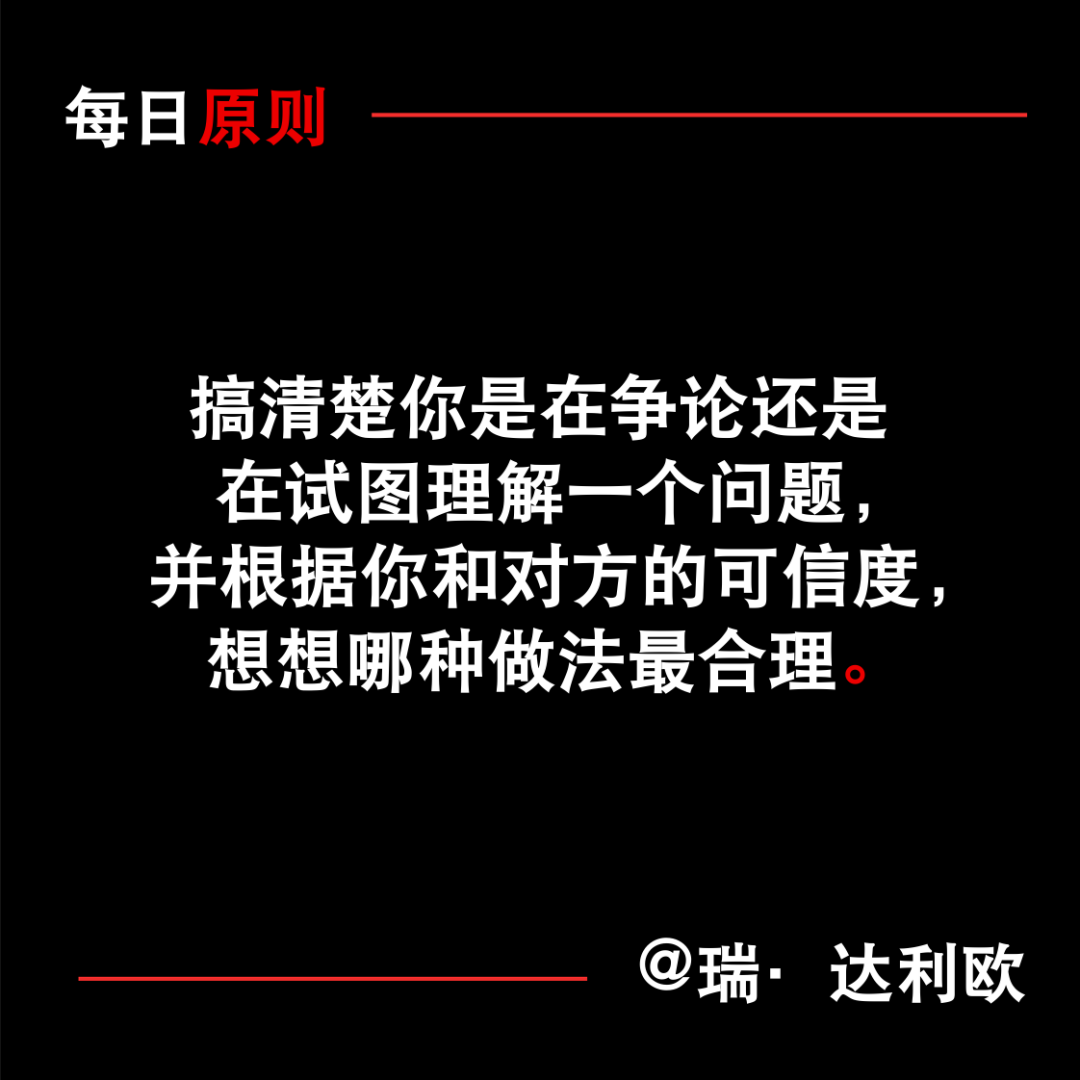如果双方水平相当,争论就是合理的;如果一方明确比另一方更有知识,就应该让一方做老师,另一方做学生去请教。要做好这一点,你必须理解“可信度”这一概念。我定义的“可信”的人有两个特征:曾反复地在相关问题上有成功的经历(至少成功过三次,拥有过硬履历);在被问责的情况下能对自己的观点做出很好的解释。
假如在某个问题上有一个人可信,或者至少比你可信(例如当你和医生讨论你的健康状况的时候),而你和他的观点不同,你就应该清楚地表示你是在提问题,从而试图理解对方的观点。相反,如果你显然是双方中更可信的人,你就应该礼貌地提醒对方这一点,并建议他向你提问题。
If both parties are peers, it’s appropriate to argue. But if one person is clearly more knowledgeable than the other, it is preferable for the less knowledgeable person to approach the more knowledgeable one as a student and for the more knowledgeable one to act as a teacher. Doing this well requires you to understand the concept of believability. I define believable people as those who have repeatedly and successfully accomplished the thing in question—who have a strong track record with at least three successes—and have great explanations of their approach when probed.
If you have a different view than someone who is believable on the topic at hand—or at least more believable than you are (if, say, you are in a discussion with your doctor about your health)—you should make it clear that you are asking questions because you are seeking to understand their perspective. Conversely, if you are clearly the more believable person, you might politely remind the other of that and suggest that they ask you questions.

瑞·达利欧官方微信公众号: raydalio_
《每日原则》为瑞·达利欧(Ray Dalio) 原创,
《原则》团队翻译,欢迎分享,转载请注明出处。
